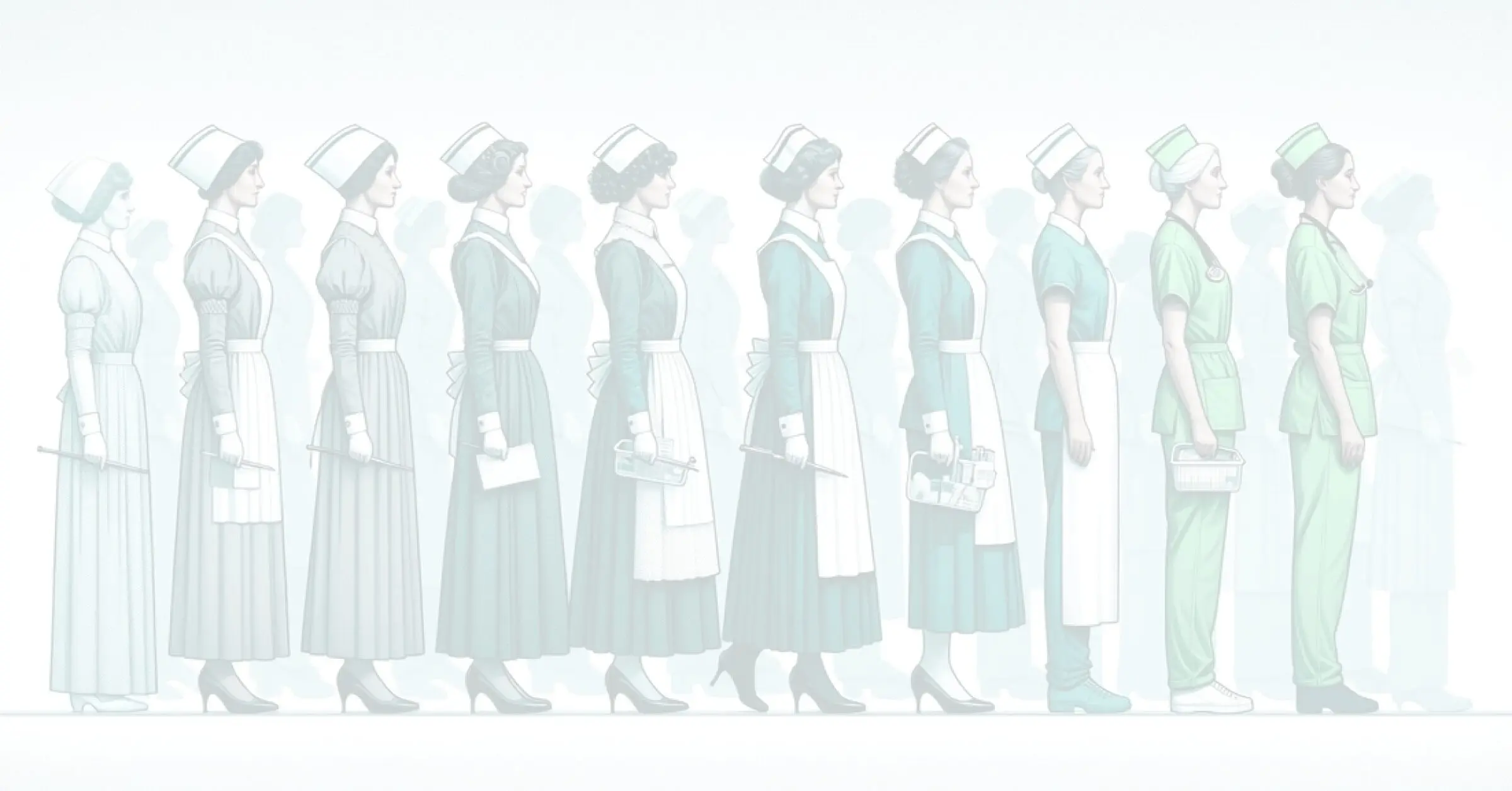“As a nurse we have the opportunity to heal the mind, soul, heart, and body of our patients. They may forget your name but they will never forget how you made them feel.” – Maya Angelou
Trace the evolution of nursing from the candlelit wards of the past to today’s advanced healthcare settings. This Nurses Week, we celebrate the pioneering efforts and milestones that have shaped U.S. nursing into a cornerstone of modern medical care. Join us as we explore the transformative journey of this vital profession.
Where the title “Nurse” came from:
The word “nurse” comes from the Latin word “nutrire,” which means to nourish or to suckle. Historically, nurses were primarily women who provided care to sick and injured individuals in their homes, often as a family member or neighbor. As the demand for healthcare grew, nursing evolved into a profession that required specialized knowledge and training.
The first profession of nurses in the US:
The Bellevue Hospital School of Nursing in New York City holds the distinction of being the first institution in the United States to offer professional nursing training. Established in 1873 by Dr. Susan Dimock, a visionary physician who understood the critical need for formally educated nurses in hospitals, the school marked a pivotal shift in healthcare.
Prior to the establishment of this program, nursing was largely an informal role performed by women in the home or community without formal training. The introduction of a structured curriculum at Bellevue transformed nursing into a respected profession with rigorous standards and formal training.
The Bellevue Hospital School of Nursing set several educational precedents, including the implementation of a strict admissions process and a curriculum that blended theoretical instruction with practical, hands-on patient care. This model proved so successful that it became the blueprint for other nursing schools across the nation. Notably, it laid the groundwork for the modern nursing profession, emphasizing the importance of both academic knowledge and clinical experience.
This institution not only trained nurses but also instilled in them a sense of professionalism and responsibility that elevated the role of nurses from caretakers to critical components of the medical team. The graduates of Bellevue were highly sought after, and they played crucial roles in hospitals, influencing nursing practices nationwide.
Important milestones regarding Nurses and their training and academic establishments in the United States:
Throughout the late 19th and early 20th centuries, nursing education continued to evolve in the United States. In 1893, the first nursing school for African Americans was established at Provident Hospital in Chicago. The establishment of the Army Nurse Corps in 1901 marked a significant turning point, as it officially recognized the role of nurses within the military. This not only provided new opportunities for women in a predominantly male arena but also highlighted the critical need for skilled nursing care in military settings. The Corps played a crucial role in elevating the standards of care and hygiene in military hospitals, impacts that echoed through civilian medical practices over time.
The Frontier Nursing Service, founded in 1923 in rural Kentucky, was pivotal in transforming community health. Staffed by nurse-midwives, it not only brought essential prenatal and obstetric care to isolated areas but also demonstrated the effectiveness of nurse-led healthcare. This initiative underscored the value of specialized nursing training and led to the broader acceptance of nurse-midwives in the United States, paving the way for the integration of these roles into the mainstream healthcare system.
In the mid-20th century, nursing education underwent significant changes, with the introduction of new academic programs and the establishment of professional organizations. In 1948, the National League for Nursing was founded, providing a platform for nursing educators to collaborate and advance the profession. In 1952, the American Nurses Association (ANA) established the Council on Education, which set standards for nursing education and accreditation.
Today, nursing education continues to evolve, with the focus on evidence-based practice, interprofessional collaboration, and the integration of technology into patient care. The demand for highly trained nurses continues to grow, as the healthcare system faces new challenges and opportunities.
In conclusion, nursing in the United States has a rich history, dating back to the early days of healthcare. The profession has evolved over time, from its origins as a primarily female-dominated field to a highly specialized profession requiring advanced education and training.
Today, nursing is a vital component of the healthcare system, and nurses play a critical role in improving health outcomes and enhancing patient care. We’ll dive into the latest developments in technology that help nurses deliver the best care to their patients (such as A.I. and Telehealth programs). Later this week, we’ll give our thoughts on the future of the nursing profession. Stay tuned!
